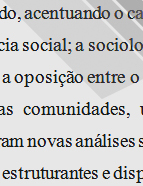

................................
As far as institutions are concerned, his History of Portugal, although it does not go beyond the 13th century, provides a general overview of the functioning of the monarchy and the central government bodies, but it is on municipalism that his work takes on greater significance, given the importance he attached to local institutions in the development of the country and in combating political centralism, which he considered an obstacle to national progress. After providing a detailed overview of the origins and evolution of municipalities, he characterised municipal institutions in terms of all their powers and legal contours, as well as the local authorities and civil service. He emphasised the role of charters as the founding documents of municipalities and instruments of local public law. Herculano thus created a historiographical framework that would be followed by future generations of historians of municipal institutions. The rigour , erudition and documentary rigour as criteria for the legitimacy of historiographical work also conditioned Herculano’s dedication to the compilation of the Portugaliae Monumenta Histórica , a work that sought to place Portugal on a par with European countries where historical studies were more developed.
Alexandre Herculano was also a populariser of history, both in the press and in the historical novels he wrote so well, since he attributed to history a cultural and civic function that was essential to restoring national confidence and regenerating the country. He was a prominent polemicist and , as evidenced by his História da origem e estabelecimento da Inquisição em Portugal (1859), which sought to combat centralism and ultramontane Catholicism in the name of liberal tolerance. From an institutional point of view, this work also provides a complete picture of the creation and development of the Inquisition, as well as the regulation and functioning of the court, making it an essential work for its study. In relation to another controversy in parliament to “resurrect” the College of Nobles, Herculano traced the history of this institution in Da Escola Politécnica e do Colégio dos Nobres (1841).
This work is financed by national funds through FCT - Foundation for Science and Technology, I.P, in the scope of the projects UIDB/04311/2020 and UIDP/04311/2020.
